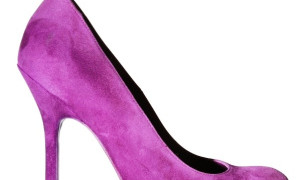 12 Terms
12 TermsHome > Terms > Armeană (HY) > փոխարժեք
փոխարժեք
The price at which one currency can be converted into another. Over the years, economists and politicians have often changed their minds about whether it is a good idea to try to hold a country’s exchange rate steady, rather than let it be decided by market forces. For two decades after the second world war, many of the major currencies were fixed under the Bretton Woods agreement. During the following two decades, the number of currencies allowed to float increased, although in the late 1990s a number of European currencies were permanently fixed under economic and monetary union and some other countries established a currency board. When capital can flow easily around the world, countries cannot fix their exchange rate and at the same time maintain an independent monetary policy. They must choose between the confidence and stability provided by a fixed exchange rate and the control over interest rate policy offered by a floating exchange rate. On the face of it, in a world of capital mobility a more flexible exchange rate seems the best bet. A floating currency will force firms and investors to hedge against fluctuations, not lull them into a false sense of stability. It should make foreign banks more circumspect about lending. At the same time it gives policymakers the option of devising their own monetary policy. But floating exchange rates have a big drawback: when moving from one equilibrium to another, currencies can overshoot and become highly unstable, especially if large amounts of capital flow in or out of a country. This instability has real economic costs. To get the best of both worlds, many emerging economies have tried a hybrid approach, loosely tying their exchange rate either to a single foreign currency, such as the dollar, or to a basket of currencies. But the currency crises of the late 1990s, and the failure of Argentina's currency board, led many economists to conclude that, if not a currency union such as the Euro, the best policy may be to have a freely floating exchange rate.
- Parte de vorbire: substantiv
- Sinonim(e):
- Glosar:
- Industrie/Domeniu: Economie
- Categorie: Economie
- Company: The Economist
- Produs:
- Acronim-abreviere:
Alte limbi:
Ce doriţi să spuneţi?
Termeni la ştiri
Termeni dezvoltaţi
Եթերային յուղ
եթերային յուղը բուսական նյութերից արտահանված հեղուկ ցնդող նյութերի հոտավետ խառնուրդ է: եթերային յուղերի մեծ մասը հեշտությամբ լուծվում է բենզինի, ...
Colaborator
Glosare dezvoltate
Browers Terms By Category
- Evoluţia omului(1831)
- Evoluţie(562)
- Arheologie în general(328)
- Unelte arheologice(11)
- Manufactură(8)
- Situri săpături(4)
Arheologie(2749) Terms
- Îngrijirea pielii(179)
- Chirurgie plastică(114)
- Hair style(61)
- Implanturi sâni(58)
- Cosmetic products(5)
Frumuseţe(417) Terms
- Operaţiuni bancare de investiţii(1768)
- Operaţiuni bancare personale(1136)
- General banking(390)
- Fuzionări şi achiziţii(316)
- Ipotecă(171)
- Ofertă publică iniţială(137)
Operaţiuni bancare(4013) Terms
- Jurnalism(537)
- Ziar(79)
- Jurnalism de investigaţii(44)
Servicii de ştiri(660) Terms
- Ceas(712)
- Calendar(26)





